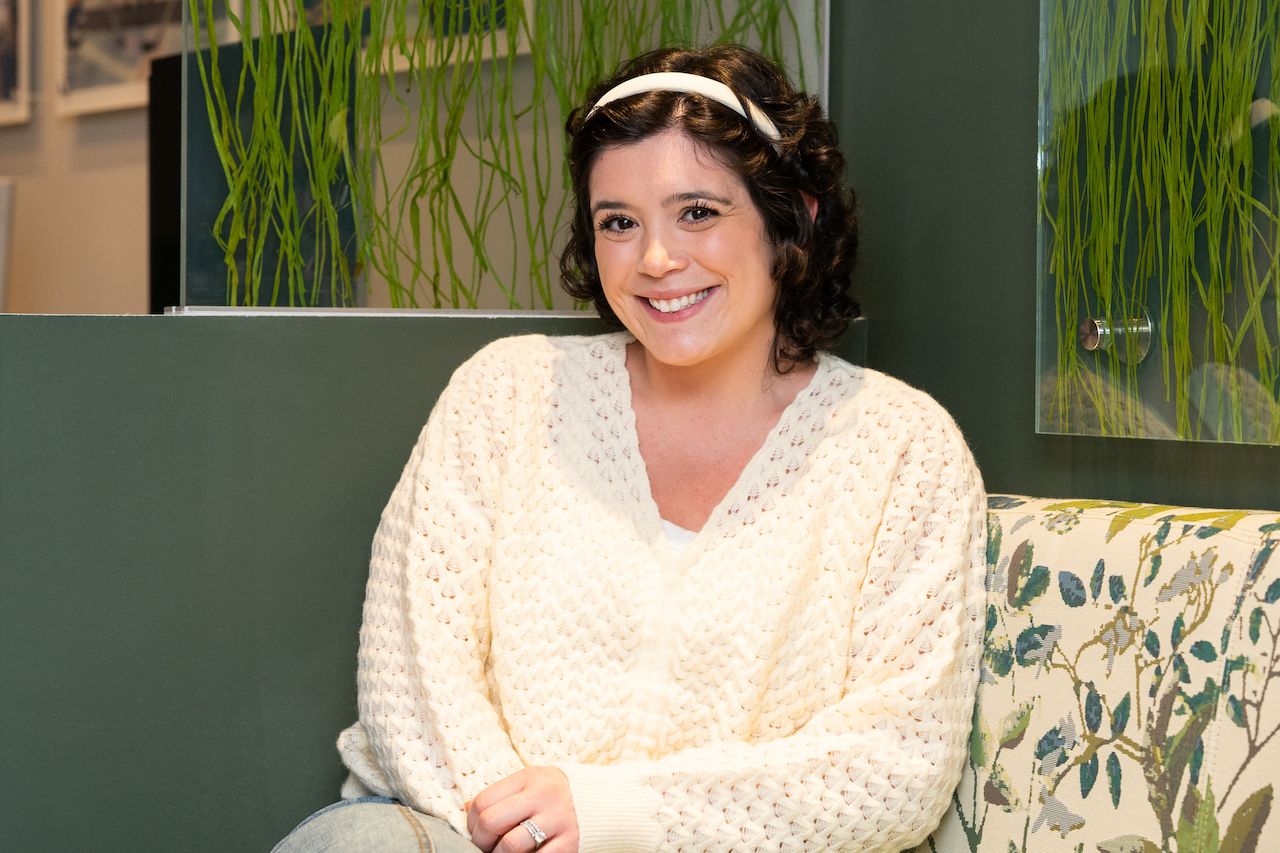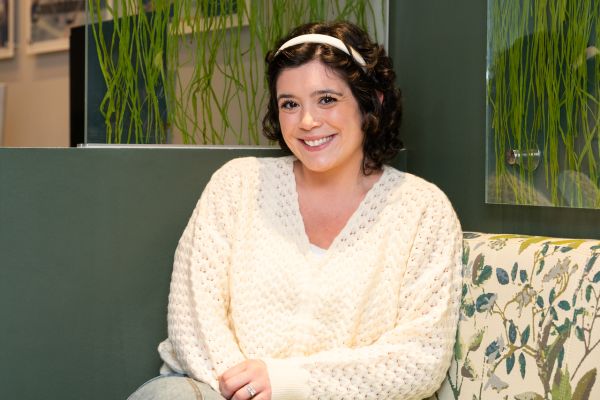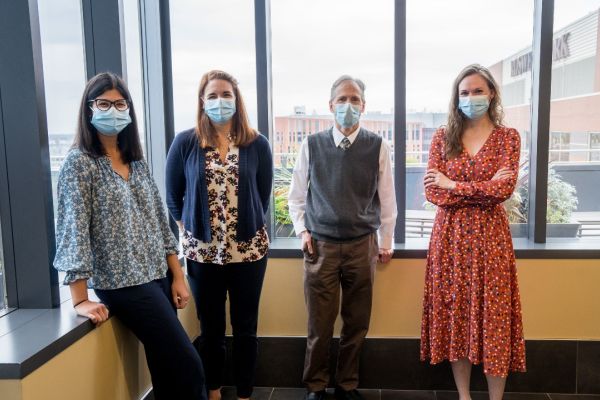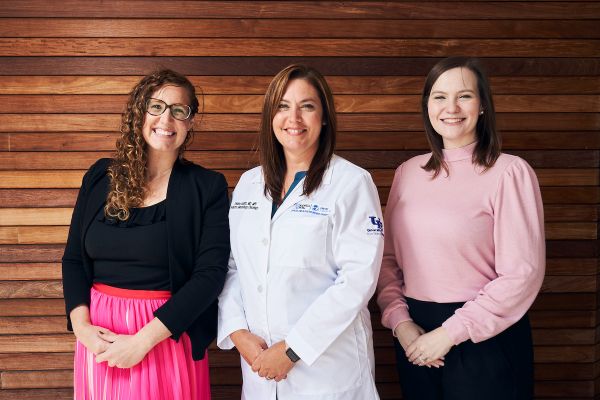For many cancer patients, understanding their genetics can make all the difference in their care. Research has shown that some cancers are hereditary. That means people who carry specific genes are at a higher risk of being diagnosed with certain cancers.
Patients who meet a set of criteria including history of cancer at a young age; rare cancer diagnoses; and a strong family history of cancers such as prostate, colorectal, breast, ovarian or pancreatic cancers are eligible for genetic testing at Roswell Park.
Jenna’s Story
Jenna Wier’s mom was diagnosed with breast cancer at age 46. Thankfully, she completed her treatment, beat her disease and has been healthy ever since. Genetic testing helped to uncover why she had cancer at such a young age: she had the BRCA gene and was genetically predisposed to have breast cancer.
In 2017, Jenna’s own genetic testing revealed that she too had inherited the gene. She diligently scheduled screenings until October 2021 when cancer came into her own life: stage 1b, triple negative breast cancer. While an aggressive form of cancer, hers had been found early and hadn’t spread. She turned to the same Roswell Park doctor who had helped to save her mom. After 16 rounds of chemotherapy over approximately six months, Jenna completed treatment in April 2022.
“I’m so grateful to have known [about my genetic predisposition],” she said. “Who knows what would have happened? Knowing saved my life.” If her mom hadn’t gotten sick, if she hadn’t discovered her own genetic makeup, Jenna would have been completely blindsided by her cancer.
Carly’s Story
The first several months of Carly Hathaway’s illness were frustratingly without answers. While out on a hike in August of 2020, she began to feel discomfort which turned to pain. Thinking she may have pulled a muscle in her glutes, she remained active throughout the summer without finding any way to effectively address her symptoms.
Carly was an otherwise healthy young woman. Her primary care doctor didn’t seem alarmed, but Carly knew something wasn’t right. She advocated for herself, trusted her instincts and ultimately learned she had stage 3 colorectal cancer. After beginning her care elsewhere, she moved her care to Roswell Park in October where she took full advantage of the Young Adult Program, mental health support and genetic testing.
There’s a significant history of cancer in Carly’s family, but her results did not show any genetic link. She was concerned that there seemed to be no clear reason why she would have cancer at such a young age, but Carly was glad to have a path forward through her treatment. Now, she’s determined to use her own experience to help educate and advocate for other young people with concerns about their health.
Offering answers
Funds raised by individuals, the Future of Roswell Society and through events like the 2022 IceCycle help fund Roswell Park’s Genetics program. Genetic testing was able to offer answers for both Jenna and Carly, which helped their care teams form the best possible plan for their cancer journeys. Genetic testing can help clinicians better tailor treatment to each patient individually and knowing personal genetics can help inform next steps in care, in many cases.
Editor’s Note: Cancer patient outcomes and experiences may vary, even for those with the same type of cancer. An individual patient’s story should not be used as a prediction of how another patient will respond to treatment. Roswell Park is transparent about the survival rates of our patients as compared to national standards, and provides this information, when available, within the cancer type sections of this website.



